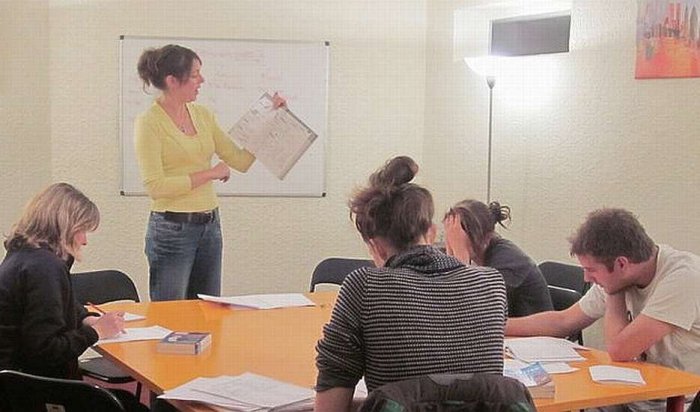Help


In school, they teach us about Barney and Sally and what they like to read, watch and put onto their sandwiches. I don’t care if Barney likes a tomato on his sandwich nor whether Sally called her friends the other day and neither should you! To learn a language is not to read about an imaginary character who engages in pre-preschool activities, but to walk on a path to an amazing journey of thinking in a completely different way. There are many textbooks out there that teach about other versions and variations of Barney and Sally and their friends, but they also teach you the soulless grammar and painful vocabulary, which will get you nowhere.

Until now, I told you about all the common mistakes schools and people in general make when they learn a new language. Now it’s time for the “How To” part.
2. Don’t be embarrassed to make mistakes! – Find a friend on Skype or in your local area who speaks the language you’re learning as a first language with whom you can talk at least two or three times a week. You’ll find yourself making many mistakes at first and it may feel embarrassing. Well, don’t think too much about it! That’s what is supposed to happen.
3. Don’t think s/he will think less of you if you make mistakes! – People generally want to help you learn their language. Especially on polyglotclub.com. So don’t think they’ll laugh at you for not knowing the language in the very beginning!
5. Talk about yourself! – Talk about what you did the day before, about your “what if's”, about your last and future vacations. Basically, make a new friend!
6. Write about your day! – Take your favorite piece of writing software (or pen and paper if you prefer) and write about your day or feelings (try to use the dictionary as little as possible), then ask your new friend if s/he would mind correcting it for you. Take a moment to study the mistakes you made.
Related topics:
- How to improve your understanding of spoken English?
- Google Translate - Friend or enemy?
- Will Learning Languages Be Necessary in the Future?
- Why do you need to learn a foreign language?
Comments
 3
3
 5
5
 2
2
 1
1
 1
1
 1
All
1
All
 | RuderalJune 2023 As a student eager to learn new languages, I can relate to the challenges mentioned in the post. Despite the best efforts of schools, language learning can sometimes feel limited. That’s where additional resources likehttps://essaylab.com/do_my_assignment_for_me come in handy. This platform not only provides valuable assistance during challenging study times but also offers college papers for sale. While this may not be directly related to language learning, it emphasizes the importance of utilizing diverse resources to enhance our education. |
 English
English | mohammed_b3November 2016 Thank you so much. That really useful article |
 English
English | DrRAMarch 2016 well.... not bad |
 English
English | ninjerkJanuary 2016 Good article! |
 English
English | vincentDecember 2015 Thanks for your article  |
 English
English













































 Source: http://polyglotclub....
Source: http://polyglotclub....